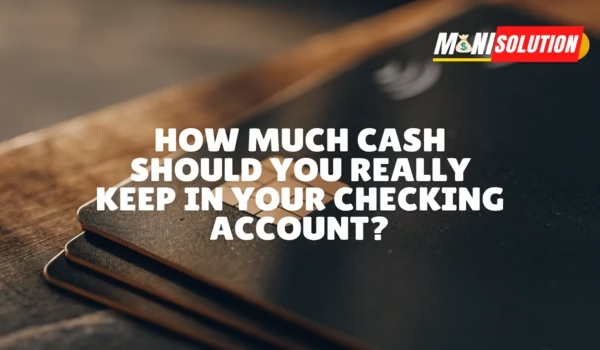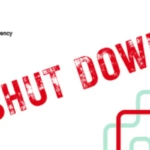Quick Summary
If you’re living paycheck to paycheck or trying to get your financial house in order, one question that often pops up is: How much money should I keep in my checking account? Experts say the answer depends on your lifestyle, spending habits, and risk tolerance — but keeping just enough is key.
Contents
Quick SummaryExpert Tips on Your Checking Account “Sweet Spot” 1. One Month of Expenses Is a Solid Benchmark 2. Don’t Let Too Much Sit Idle3. Fraud Protection Matters Don’t Confuse Checking With Emergency FundsEmergency Fund Rule:So… What’s Your Number?Suggested Checking Account Minimums:MoniTips to Maximize Your MoneyBottom Line:
Expert Tips on Your Checking Account “Sweet Spot”
1. One Month of Expenses Is a Solid Benchmark
- Jessica Goedtel, CFP in an interview recommends keeping a full month’s worth of bills in checking if you don’t track your spending closely.
- Why? It helps avoid overdraft fees and covers surprises like auto-payments or late deposits.
2. Don’t Let Too Much Sit Idle
- Gregory Guenther, CRPC: Suggests a smaller buffer — about one to two weeks of expenses — especially if you’re watching your accounts regularly.
- The downside of keeping too much? Missed growth. That idle money could earn interest in a high-yield savings account instead.
3. Fraud Protection Matters
- Debit cards tied to checking accounts are less protected than credit cards. If someone hacks your card, your cash could be harder to recover.
- Solution: Don’t hoard money in checking. Park the extra in a secure, interest-bearing account.
Don’t Confuse Checking With Emergency Funds
Your checking account is for bills and everyday spending — not emergencies.
Emergency Fund Rule:
- Save 3–6 months of essential expenses in a separate high-yield savings account or money market fund.
- Purpose? To cover big, unexpected costs like job loss, hospital bills, or car repairs — without touching your daily cash flow.
“Checking is for cash flow. Emergency savings is your breathing room.” — Gregory Guenther
So… What’s Your Number?
Let’s say your monthly expenses are:
- Rent: $1,200
- Groceries: $400
- Utilities & bills: $300
- Transportation: $200
Total: $2,100
Suggested Checking Account Minimums:
- Low buffer: $1,050 (half a month)
- Safe zone: $2,100 (1 full month)
- High buffer (less ideal): $3,000+ (better in savings)
MoniTips to Maximize Your Money
- Use alerts to track your balance in real-time.
- Automate transfers from checking to savings once bills are paid.
- Open a high-yield savings account for your emergency fund — many pay 4%+ interest in 2025.
- Check if your bank offers overdraft protection via a linked savings account.
Bottom Line:
Keep enough in your checking account to breathe — but not so much that your money just sits there doing nothing. A smart balance avoids fees, protects your peace of mind, and grows your wealth over time.








